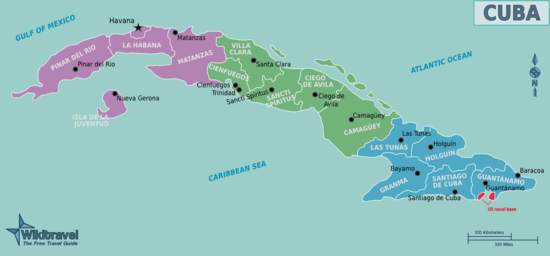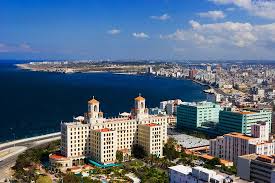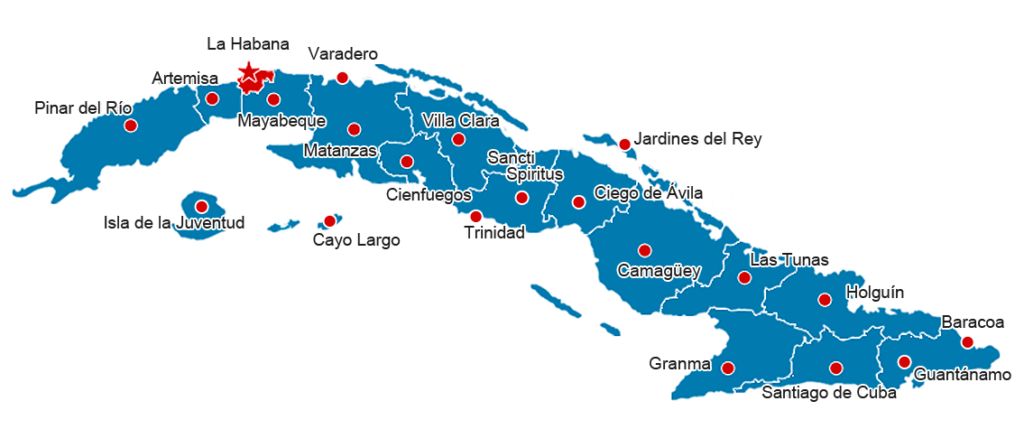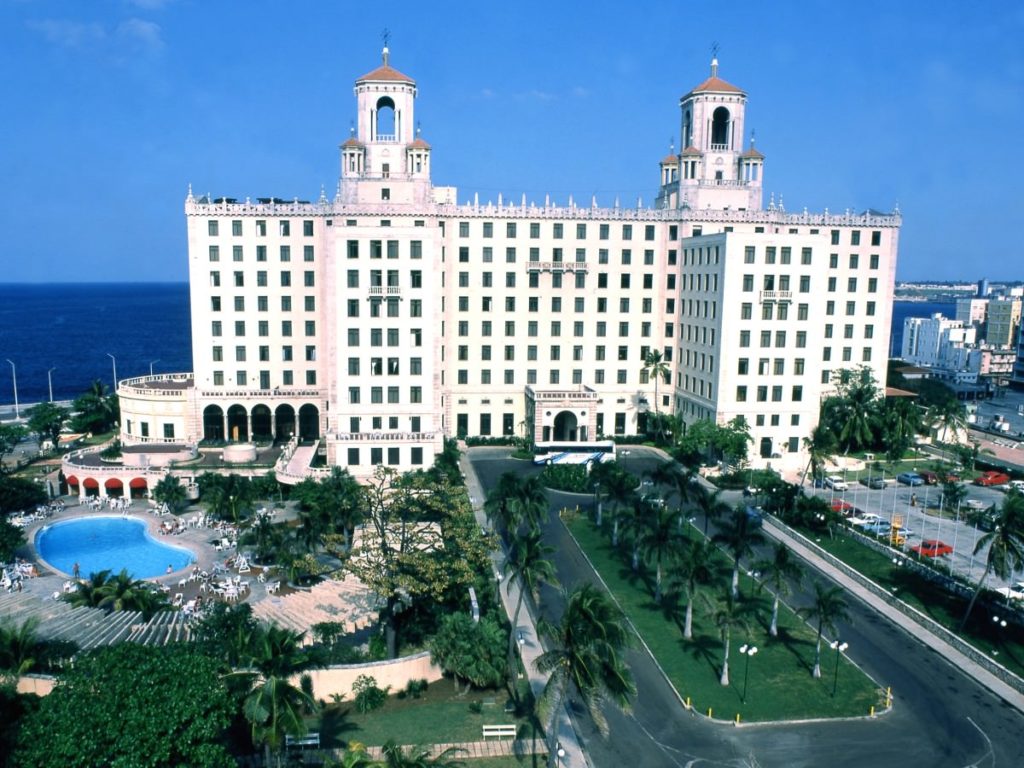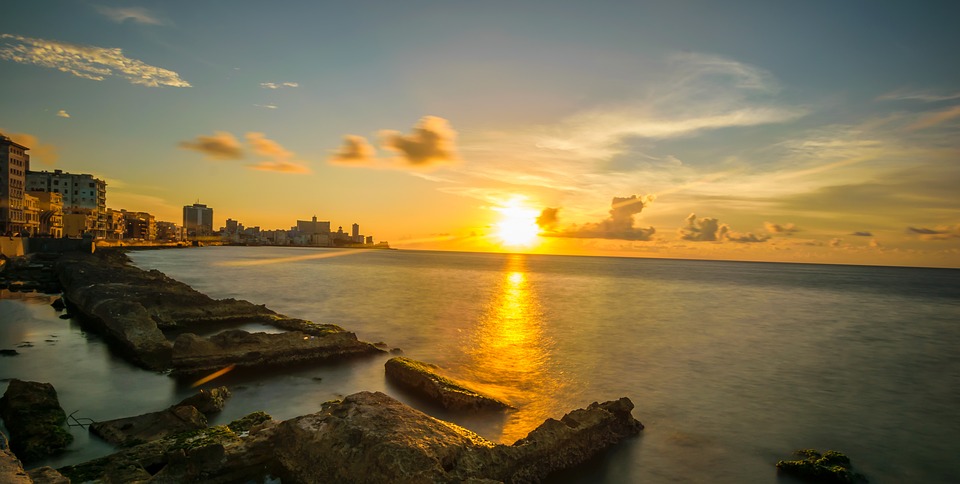Unfortunately, Cuba, a small country, has not known how to live, as a society, a single day without its relationship with another country, more powerful, influences or dominates in its actions. First was Spain and colonization, then the United States, which intervened the country, modernized and civilized and imposed its economic dominance and a large part of its way of life. With the revolution, which promised an independent and democratic country, as Marti dreamed, came the worst: total subordination to the Soviet Union and the imposition of customs and methods of life far removed from our idiosyncrasies.
This was accompanied by a total loss of values, including civil rights, which were never very respected in our failed democracy, but which with Soviet domination almost disappeared. From the period after the disintegration of the socialist camp I will not speak, because the crude Venezuelan imitators, the only thing they achieved was to repeat in a rich country, a model totally failed and unwanted by the Cuban people and that has ended up taking the Bolivar country to chaos and total disaster.
Cuba, before the revolution, had one of the lowest emigration rates in the world. On the contrary, it was, since independence, a country that came to have more foreigners than nationals, forcing the government to implement laws to protect the employment of those born on the island.
But the revolution came, the change that many wanted, which initially brought hope and confidence, which over the years has become, thanks to the exodus that has caused their errors and stagnation, in longing, melancholy, nostalgia, sadness, grief and in the appearance of the “gorrion” (sparrow).
That heartrending feeling that the Portuguese call saudade and the Galician morriña, the Cubans who lived the second half of the 20th century and suffered the revolutionary attacks, baptized as “sparrow”, (gorrion o Nostalgia) which is a feeling of deep melancholy, which leads to the one who suffers by all the forms of sadness and fills us with memories, emotions and ways that we will not walk anymore, but that are always with us, lacerating.
The sparrow is a bird that stands out neither for its song, nor for its appearance, but for its great ability to adapt to the environment where it is and its broad food spectrum, so it is a survivor par excellence.
Hence the analogy of the Cubans in calling our sadness (gorrion) “sparrow”, because to resist subjected to an imposed political ideology, we had to adapt to that hostile environment to survive.” There is no doubt that the sparrow is perched on every Cuban emigrant who He left behind his history, his family, his customs, his loves, his roots to achieve what is denied in his land, but the sparrow is also posed with equal force in every relative or friend who remains in Cuba and are aware, as Carlos Varela in his song “Politics does not fit in the sugar”, which reminds us that in every Cuban house there is at least one empty chair.
(OPINIÓN) CUBA: COMENTARIO SOBRE NUESTRA PROPIA REALIDAD ACTUAL.
Desgraciadamente, Cuba, un país pequeño, no ha sabido vivir, como sociedad, un solo día sin que su relación con otro país, más poderoso, influya o domine en su accionar. Primero fue España y la colonización, después Estados Unidos, que intervino el país, lo modernizó y civilizó e impuso su dominio económico y una gran parte de su modo de vida. Con la revolución, que prometió un país independiente y democrático, como soñara Martí, vino lo peor: la subordinación total a la Unión Soviética y la imposición de costumbres y métodos de vida muy alejados de nuestra idiosincrasia.
A ello lo acompañó una pérdida total de valores, entre ellos los derechos civiles, que nunca fueron muy respetados en nuestra fallida democracia, pero que con el dominio soviético llegó casi a desaparecer. De la etapa posterior a la desintegración del campo socialista no voy a hablar, porque los burdos imitadores venezolanos, lo único que lograron fue repetir en un país rico, un modelo totalmente fallido y no deseado por el pueblo cubano y que ha terminado con llevar al país de Bolívar al caos y el desastre total.
Cuba, antes de la revolución, tenía una de las tasas más bajas de emigración del mundo. Todo lo contrario, era, desde su independencia, un país que llegó a contar con más extranjeros que nacionales, lo que obligó al gobierno a implantar leyes para proteger el empleo de los nacidos en la Isla.
Pero llegó la revolución, el cambio que muchos quería, que trajo al principio esperanza y confianza, lo que con los años se ha convertido, gracias al éxodo que ha provocado sus errores y su estancamiento, en añoranza, melancolía, nostalgia, tristeza, pena y en la aparición del “gorrión”.
Aquel sentimiento desgarrador que los portugueses llaman saudade y los gallegos morriña, los cubanos que vivimos la segunda mitad del siglo XX y sufrimos los embates revolucionarios, bautizamos como “gorrión”, que es un sentimiento de profunda melancolía, el cual lleva al que lo sufre por todas las formas de la tristeza y nos llena de recuerdos, emociones y caminos que ya no andaremos más, pero que están siempre con nosotros, lacerantes.
El gorrión es un pájaro que no se destaca ni por su canto, ni por su aspecto, sino por su gran capacidad de adaptarse al medio donde está y su amplio espectro alimentario, por lo que es un sobreviviente por excelencia.
De ahí surge la analogía de los cubanos en llamar nuestras tristezas”gorrión, porque para resistir sometidos a una ideología política impuesta, hemos tenido que adaptarnos a ese medio hostil para poder sobrevivir. No hay duda que el gorrión está posado en cada emigrado cubano que dejó atrás su historia, su familia, sus costumbres, sus amores, sus raíces para conseguir lo que en su tierra le está negado. Pero el gorrión también está posado con igual fuerza en cada familiar o amigo que permanece en Cuba y están conscientes, como Carlos Varela en su canción “La política no cabe en la azucarera”, que nos recuerda que en cada casa cubana hay al menos una silla vacía.
Agencies/MemoriasCubanas/Carlos Rodríguez/Comentarios/ Internet Photos/ Arnoldo Varona/ TheCubanHistory.com
THE CUBAN HISTORY, HOLLYWOOD.



 > (OPINION) CUBA: Commentary about Our Own Reality. <> (OPINIÓN) CUBA: Comentarios sobre Nuestra Propia Realidad. (Fotos).
> (OPINION) CUBA: Commentary about Our Own Reality. <> (OPINIÓN) CUBA: Comentarios sobre Nuestra Propia Realidad. (Fotos).